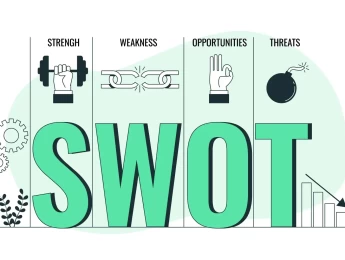The recent global transition to primarily online and remote functions has caused organisations to follow suit. However, this is not an inherently bad decision. Remote team management often becomes necessary as organisations expand internationally, and it is essential to know how to communicate effectively with remote employees.
Before addressing customers, an organisation needs to recognise the capabilities of its international employees and how they can best be utilised. International employees often are considerably more knowledgeable in different regions and grant insight on specific customer demands and trends. This will allow the sales team to adjust their approach and communication style to be most suitable.
Sales management should also focus on the employee. Their requirements will differ from those of existing employees, and the employer is responsible for meeting these needs. They must implement appropriate methods of stress reduction and offer rewards and incentives relative to those individuals to ensure they remain motivated and engaged within the role. Meeting these needs remotely can come with specific challenges, but with regular and thorough communication, all challenges should have minimal impact.
Upon completion of this course, participants will be able to:
- Understand the vitality of effective remote sales team management within an organisation.
- Evaluate the necessity of remote teams within sales and the benefits and limitations.
- Closely engage with the sales teams and build strong relationships to help encourage increased work productivity.
- Review the concepts, principles, and purpose of leading, motivating and developing international teams.
- Recognise the influence culture has on the selection process.
- Utilise international teams to ideally engage with customers in different regions.
- Develop varied communication styles to accommodate international employees and customers best.
This course is designed for anyone within an organisation responsible for managing international and remote sales teams. It would be most beneficial for:
- Operations Managers
- Sales Directors
- Regional Managers
- Business Owners
- Sales Executives
- Sales Managers
- Marketing Directors
- Chief Sales Officers (CSOs)
This course uses a variety of adult learning styles to aid full understanding and comprehension. Participants will review case studies of real-world organisations that have established remote sales teams to highlight key areas of management and areas where management efficiency may be lacking.
Participants will use a combination of different learning methods to guarantee a full and comprehensive understanding of the taught content. These include group discussions, presentations, and individual and group activities. Working individually and in groups will allow the participants to practise and demonstrate any relevant practical skills offered and receive feedback from others.
Day 5 of each course is reserved for a Q&A session, which may occur off-site. For 10-day courses, this also applies to day 10
Section 1: Introduction to Global Sales Demands
- Identifying how customer demands and wants vary depending on region.
- Managing customer expectations during shifts in market demands.
- Monitoring customer behaviours and attitudes and how these influence buying habits.
- Investigating current and past market trends to predict and prepare for future trends accurately.
- Transitioning from transactional to consultative selling.
Section 2: Consultative Sales Approach
- Developing strong communication skills, including questioning, listening and negotiation.
- Growing sales through an emotional approach – engaging with customers emotionally to influence buying.
- Adding value through the process of storytelling.
- The secrets of selling at full price.
- Upselling and cross-selling products or services.
Section 3: Cross-Cultural Communication
- Understanding how communication expectations vary from region to region.
- Evaluating how change in customer demands depends on region and accessibility.
- Engaging with international employees to establish relationships remotely.
- Providing relevant rewards and incentives for maximum productivity.
- Navigating business etiquette through the cultural and language barrier.
- Setting mutual expectations.
Section 4: Leading International Teams
- Accommodating international time zones so business burdens do not heavily rely on one particular team.
- Assessing how culture will impact the hiring process.
- Coaching and retraining employees to be culturally sensitive and aware.
- Motivating and encouraging outstanding work through rewards and incentives.
- Establishing reasonable and desirable targets.
Section 5: Managing Efficiency Internationally
- Managing relationships through different regions and time zones.
- Emphasising effective time and stress management.
- Closely organise and schedule day-to-day tasks to be available whenever needed.
- Delegating tasks accordingly depending on employee strengths and weaknesses.
- Frequent communication to ensure all team members are performing to expectations.
Upon successful completion of this training course, delegates will be awarded a Holistique Training Certificate of Completion. For those who attend and complete the online training course, a Holistique Training e-Certificate will be provided.
Holistique Training Certificates are accredited by the British Assessment Council (BAC) and The CPD Certification Service (CPD), and are certified under ISO 9001, ISO 21001, and ISO 29993 standards.
CPD credits for this course are granted by our Certificates and will be reflected on the Holistique Training Certificate of Completion. In accordance with the standards of The CPD Certification Service, one CPD credit is awarded per hour of course attendance. A maximum of 50 CPD credits can be claimed for any single course we currently offer.
- Course Code PM1-116
- Course Format Classroom, Online,
- Duration 5 days














